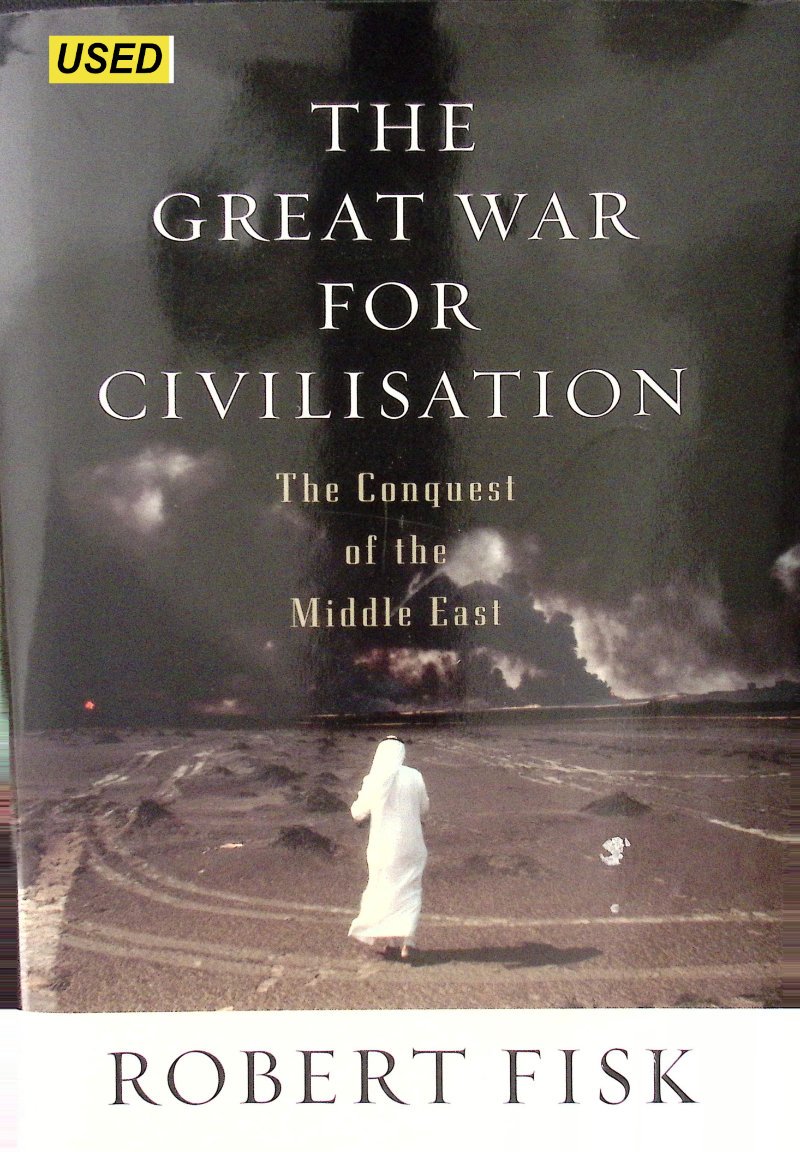By Robert Fisk
FROM THE JACKET: “During the thirty years that award-winning journalist Robert Fisk has been reporting on the Middle East, he has covered every major event in the region, from the Algerian Civil War to the Iranian Revolution. from the American hostage crisis in Beirut (as one of only two Western journalists in the city at the time) to the Iran-Iraq War. from the Russian invasion of Afghanistan to Israel's invasions of Lebanon, from the Gulf War to the invasion and ongoing war in Iraq. Now he brings his knowledge. his firsthand experience and his intimate understanding of the Middle East to a book that addresses the full complexity of its political history and its current state of affairs.
Passionate in his concerns about the region and relentless in his pursuit of the truth, Fisk has been able to enter the world of the Middle East and the lives of its people as few other journalists have. The result is a work of stunning reportage. His unblinking eyewitness testimony to the horrors of war places him squarely in the tradition of the great frontline reporters of the Second World War. His searing descriptions of lives mangled in the chaos of battle and of the battles themselves are at once dreadful and heartrending.
This is also a book of lucid, incisive analysis. Reaching back into the long history of invasion, occupation and colonization in the region, Fisk sets forth this information in a way that makes clear how a history of injustice "has condemned the Middle East to war." He lays open the role of the West in the seemingly endless strife and warfare in the region, traces the growth of the West's involvement and infiuence there over the past one hundred years….
NY. Alfred Knopf. 2006. 1150p.









